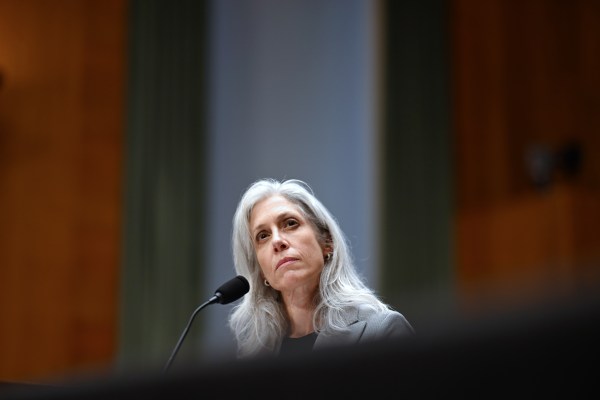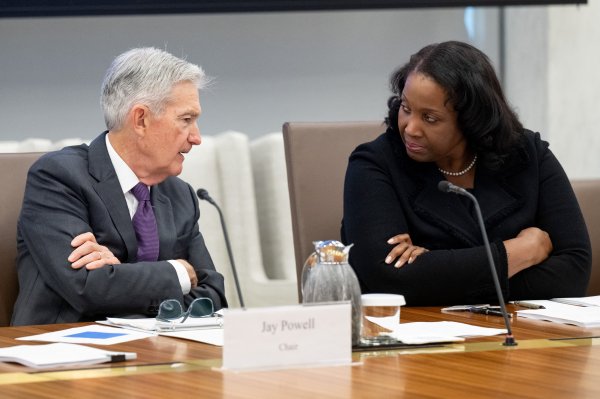Anyone who reads the Cass Review, and who then reads most recent mainstream American media coverage of youth gender medicine, will be gobsmacked.
The review, spearheaded by the respected British pediatrician Hilary Cass (and ably summed up in The Morning Dispatch last week), explains that youth gender medicine “is an area of remarkably weak evidence, and yet results of studies are exaggerated or misrepresented by people on all sides of the debate to support their viewpoint. The reality is that we have no good evidence on the long-term outcomes of interventions to manage gender-related distress.”
Cass and her colleagues arrived at this conclusion after an ambitious yearslong effort to interview clinicians, parents, and patients about their experiences with the National Health Service’s youth gender medicine system. She also commissioned a sizable bundle of independent systematic reviews evaluating both the evidence for puberty blockers and hormones, as well as the quality of recommendations published by influential groups like the World Professional Association for Transgender Healthcare. Overall, dozens of studies were collected and evaluated by the team at the University of York, and this culminated in Cass delivering a damning verdict on the present state of youth gender medicine and the professional guidelines surrounding it.
In her report, Cass clarifies that her goal is not to question whether some young people are “really” transgender. She acknowledges that some young people are in tremendous distress about their gender, and she doesn’t deny the fact that some may benefit from blockers and/or hormones. Her argument, which in any other context would not be controversial, is simply that powerful medical treatments should be underpinned by quality evidence—and that that clearly isn’t the case here. Cass also focuses on the need to ensure youth referred to gender clinics receive the proper screening and assessment before medical interventions are undertaken, especially for the growing subset of these youth who are autistic or who have mental-health comorbidities that, some experts believe, can significantly complicate the diagnostic process in these settings.
Cass’ findings led to significant new restrictions on puberty blockers and hormones for youth in the U.K. The changes follow similar decisions based on comparable (albeit less ambitious) reviews in countries like Finland, Sweden, and Norway. Other European nations seem poised to follow suit.
On the other hand, the vast majority of American media coverage has for years touted the safety and efficacy of these treatments. In some cases, writers and reporters denounced the foolishness (if not transphobia) of those who exhibit undue skepticism toward them. These articles are often festooned with quotes from psychologists, psychiatrists, and endocrinologists with extremely impressive credentials—the sorts of people we are told to trust—reinforcing the view that if these treatments have any risks or unknowns, they are small, easily swamped by their salutary effects. A certain message has been delivered with the repetition of a drumbeat: An informed, compassionate person should support access to youth gender medicine.
The consensus is so strong and so intense that CNN has a stock sentence that it has pasted into dozens of its articles on this subject: “Gender-affirming care is medically necessary, evidence-based care that uses a multidisciplinary approach to help a person transition from their assigned gender—the one the person was designated at birth—to their affirmed gender—the gender by which one wants to be known.” As far as I know, CNN is the only outlet to have gone the full “Say the line, Bart!” route, but countless outlets have produced exceptionally shoddy coverage of this subject that will not age well.
How did this divide emerge? I think I’m in a position to offer some informed speculation. I’ve been writing about youth gender medicine in one form or another since 2016, first as a staffer at New York Magazine and then as a freelancer who wrote a long and, to some, controversial 2018 cover story for The Atlantic. More recently, I’ve dedicated a fair amount of space in my own newsletter to highlighting and attempting to correct disinformation on youth gender medicine. I’m under contract to write a book about this debate.
Much of this divide can be attributed to broader problems in American civil and intellectual life. Youth gender medicine is far from the only subject that has turned into a toxic circus since 2016 or so, but I do believe it’s an outlier. With a few laudable exceptions, the way that left-of-center media outlets, academic institutions, politicians, and medical and mental-health authorities have handled this issue has been a case study of how ideology and negative polarization can not only corrupt science and its communication, but also melt it down into a rank molten sludge.
A few different things happened at once. First, Donald Trump had his usual deranging effect on everyone, and journalism was hit particularly hard. As former New York Times editorial page editor James Bennet and many, many other disillusioned journalists have argued, this—alongside the post-George-Floyd racial reckoning—caused some journalists to see themselves more as activists fighting for a better world than as dispassionate chroniclers and analysts of that world.
To be sure, the industry had already become more populated with activist-minded writers and editors over the last decade-plus. Trump’s rise and the racial protests of 2020, however, prompted a new streak of moral certitude—and at the worst possible time. Journalism was already contracting under the weight of unsolvable structural problems with its business model. Faced with layoffs, outlets’ most expensive employees were often among the first to be let go. On the science-writing front, those are the sorts of journalists—savvy, experienced reporters with decades of expertise and old-school training—best qualified to wade into a fraught area with the appropriate mix of compassion and skepticism, to know how to read a study or at least who to call to have it explained to them. But they’re now almost extinct. They’ve been replaced by 20-something journalists who often arrive at a beat like this with very different values. In some cases, this new crop of journalists has a far less keen eye for distinguishing quoteworthy experts from untrustworthy “experts.” In others, they actively seek out experts they anticipate will give them the sorts of quotes they want, ignoring dissenting voices.
Some outlets have institutionalized the idea that reporting should be shaped by identity. To take one example of many, NBC News’ coverage of youth gender medicine is mostly published not in its Science or Health section—where you’d be most likely to find journalists with the requisite training to hack through the dense jungle that is this subject—but in NBC Out, a vertical that “showcases feature stories, original videos and other unique content about, and of interest to, the lesbian, gay, bisexual, transgender and queer community.” Don’t get me wrong: There’s a place for this sort of journalism, especially given how many different groups have been unfairly excluded from media coverage over the years. I would much rather live in a world with identity verticals than in one in which LGBT people are written about as some strange, distant species.
But as a science writer, I’m skeptical that a section within a news outlet explicitly tied to a particular set of identities can produce dispassionate work on a fraught subject so intertwined with those identities. In much the same way an outlet catering to those with strong senses of Jewish or Palestinian identities wouldn’t be my first stop for careful and accurate coverage of the ongoing war in Gaza, an outlet wholly dedicated to the (otherwise laudable) task of exploring and celebrating LGBT identities might have blind spots. Sure enough, NBC Out’s prime reporter on this beat has simply decided that there’s no genuine debate here. They even once told On the Media that the gender identity debate is a “false controversy” and that journalists who argue otherwise are partially responsible for acts of deadly violence against LGBT people.
Experts themselves helped create this ecosystem of credulous, activism-infused journalism. To understand how, it’s important to realize that for years now there’s been a contentious debate among American youth gender medicine clinicians and researchers. Roughly speaking, they can be divided into two groups. The members of one group are very confident in their ability to assess which presently trans-identifying kids will feel that way in the long run and would therefore benefit from medical intervention (or think such assessment is undue “gatekeeping” and a kid’s word is, generally speaking, enough). Relatedly, they are very confident that the research shows that youth gender medicine has all sorts of positive effects on the mental health of trans youth, including reductions in suicidal ideation and attempts.
The members of the other group are by no means opposed to these treatments—they are just much more cautious. They generally believe that it’s hard to know with confidence which kids will identify as trans in the long run and that youth gender medicine is rife with unanswered questions due to the lack of quality studies. The Cass Report completely, utterly, totally, indisputably vindicates the latter camp, as have all the other aforementioned European reviews.
But in recent years, mainstream American journalism has mostly plucked as its “experts” the most self-assured, eloquent members of the former group and ignored the latter. It helps that if you reach out to a supposedly expert group like GLAAD—a reasonable-seeming first step, especially for journalists just parachuting into this subject for the first time—they will point you toward these experts. Those experts, in turn, will explain there is a scientific “consensus” on youth gender medicine.
GLAAD’s role deserves a brief treatment here. I have to cop to bias, because I’m listed on “The GLAAD Accountability Project,” which “catalogs anti-LGBTQ rhetoric and discriminatory actions of politicians, commentators, organization heads, religious leaders, and legal figures, who have used their platforms, influence and power to spread misinformation and harm LGBTQ people.” (If you read my entry and then read the Cass Review, you’ll see that clearly, Hilary Cass is a bigot deserving a slot as well.)
A genuinely powerful player and one of the most important groups in the liberal media ecosystem on matters of LGBT rights and social justice, GLAAD has launched truly vicious and unhinged attacks on fair-minded journalists who cover youth gender medicine. I got off easy. Last year, the activist group released an open letter co-signed by many other activist groups and famous people (including Margaret Cho and Gabrielle Union-Wade) calling out the New York Times for having written transphobic articles about youth gender medicine. Among the demands: “Stop questioning science that is SETTLED.” The “settled” language also appeared on a truck the group parked outside the Times office to further shame the newspaper. GLAAD also coordinated with a large group of surrogates within journalism who had contributed to the Times—that group released its own open letter the same day calling out the allegedly offending journalists by name. The letter was littered with inaccuracies, and as far as I can tell none of them have been removed. None of the signatories, some of them rather prominent, have asked to have their names removed.
To anyone who actually read the articles supposedly at issue, both letters were profoundly unfair. They were part of a yearslong effort to deter journalists from covering this subject, not by picking apart their arguments—which would be fair—but by heaping as much scorn, ridicule, blame, and other forms of reputational damage on them as possible.
All this added up to an absolute minefield for any reporter foolish enough to write about this issue in a journalistic rather than a cheerleading way. Over in the U.K., Cass explained that the “surrounding noise and increasingly toxic, ideological and polarised public debate has made the work of the Review significantly harder and does nothing to serve the children and young people who may already be subject to significant minority stress.” Proving her point, within about a week of her review’s publication, Cass, after being widely derided as a bigot and a monster by activists and their surrogates in the media, was told to avoid public transportation due to the violent threats leveled at her.
The toxic and deeply anti-intellectual dynamics that incentivized weak journalism on youth gender medicine were already firmly established by the time Republican states started attempting to ban or severely restrict youth gender medicine. But whatever slim remaining chance we had at a productive national conversation about this subject flew out the windows when those bills caught on. The question was no longer what youth gender medicine would look like, what regulations it would be subjected to, and so on, but whether it would exist at all.
This understandably freaked out parents, youth, and activist groups alike. Because a handful of weak and questionable studies about the purported benefits of youth gender medicine had been endlessly disseminated and exaggerated, and because some irresponsible clinicians had argued—well in advance of any evidence that this is the case—that puberty blockers and hormones have strong anti-suicide properties, panic set in. On top of that, many American professional organizations, like the Endocrine Society and the American Academy of Pediatrics, had published overheated statements and professional guidelines supporting these treatments, often in response to Republican bills seeking to ban them. As the Cass Review’s systematic report of such recommendations showed, such statements did not adhere to adequate standards of evidence, argument, or citation. (While the case is still underway and nothing has been proven yet, it bears mentioning that both the AAP and the lead author of its much-criticized 2018 policy statement extolling the virtues of youth gender medicine, the child psychiatrist and pediatrician Jason Rafferty, are being sued by a detransitioner who claimed that Rafferty and her other clinicians rushed her through a medical transition she now regrets.)
Think about this from the perspective of a parent who has imbibed this firehose of misinformation from liberal media outlets and the handful of most ardently pro-transition “expert” clinicians, and whose child has started youth gender medicine or is considering doing so. The prospect of your local clinic being shut down by the government is unthinkable. It’s terrorizing, in fact, because from where you sit, this is a life-and-death issue. What sane, loving parent is going to respond to a perceived threat to their child’s life by becoming more rational, more open-minded, and more willing to navigate the dry and brambly ins-and-outs of a fraught bioethical controversy?
And so the polarization spiral only accelerated. Now, with the shadow of these laws looming, if you asked questions about these treatments, it wasn’t just that you didn’t care about trans youth, it was that you were actively abetting Trumpian Republicans’ evil attempts to literally kill them via the mass suicide that will ensue when they are denied access to blockers or hormones (if you think I’m overstating the rhetoric we’ve seen in the wake of these laws, just hop on Twitter). What could be a worse label to be tarred with as a journalist or scientist genuinely trying to better understand this subject? Why bother at all?
As much as I’d like to provide a tidy or hopeful ending, I can’t. I do know that at a certain point, professional organizations that want to retain even a modicum of credibility will have no choice but to remove their heads from their sand. The AAP is working on its own systematic review of these treatments, and it has no good outcomes available to it. The choice appears to be between a headache and a disaster: If the systematic review is competently conducted and concurs with all those other systematic reviews, GLAAD will be mad for a few days—maybe it will park a truck somewhere!—and that will be a headache. If the AAP’s findings break from the rest of the civilized medical world, that would be a disaster for the organization. In the long run, institutions and figures will be forced to follow the trail blazed by Europe, not out of any sense of moral duty toward trans and gender-nonconforming youth, which was abandoned long ago, but simply because of the sheer brute force of institutional and reputational incentives. The American era of youth gender medicine being “SETTLED SCIENCE!!!” has reached its sunset.
The remaining questions are how quickly this will happen, how much ongoing damage will be done in the meantime to kids stuck in an incompetent and overworked medical system, or in states lacking youth gender medicine entirely, and what sort of accountability there will be for the journalists and “experts” who so badly botched this issue. On the media side, we don’t appear to be off to a good start: CNN, NPR, CBS News, NBC News, Vox, and Scientific American have almost entirely ignored the Cass Review, hoping it’ll fade away.
It won’t.







Please note that we at The Dispatch hold ourselves, our work, and our commenters to a higher standard than other places on the internet. We welcome comments that foster genuine debate or discussion—including comments critical of us or our work—but responses that include ad hominem attacks on fellow Dispatch members or are intended to stoke fear and anger may be moderated.
With your membership, you only have the ability to comment on The Morning Dispatch articles. Consider upgrading to join the conversation everywhere.